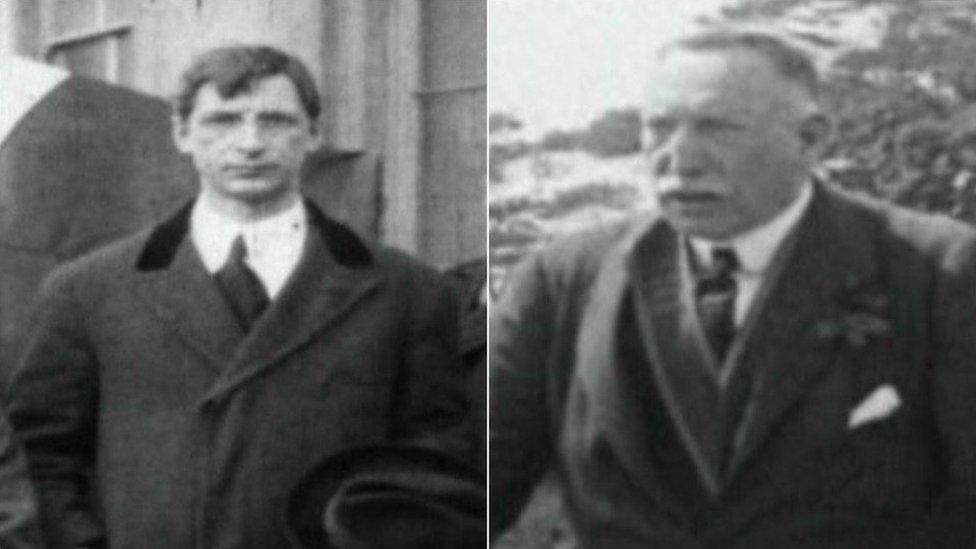NI 100: High stakes and violence marked NI's first poll
- Published

The Northern Whig made its feelings clear on polling day
When voters across Ireland went to the polls on 24 May 1921 to elect two new parliaments, the stakes were high and the atmosphere tense.
The War of Independence was still raging and just weeks earlier the Government of Ireland Act had come into effect, creating two new entities - Northern Ireland and Southern Ireland - both with their own parliaments.
In Northern Ireland the newspapers of the period reflected the tension.
The language of the unionist papers was of fighting for the religious and civil liberty of Ulster and saving the new country from IRA violence, while nationalists were urged to strike a blow against the partition of Ireland.
Every paper is filled with reports of killings, attacks on police and IRA men and, in some cases, voters.
'Tyranny of the assassin'
The Northern Whig and the News Letter - both unionist papers - carried appeals from unionism's two main leaders, Sir Edward Carson and Sir James Craig.
Carson's, in the form of a telegram sent to Craig, urged "every loyal man and woman in Ulster" to rally in their "great fight for civil and religious liberty".
"Ulster must be saved from the tyranny of the assassin," it concluded.
Craig's message, meanwhile, was: "The case is sacred and worthy of every personal sacrifice.
"Fly the Union Jack. Sweep the polls. Vote early. Work late.
"The eyes of our friends throughout the Empire are upon us."
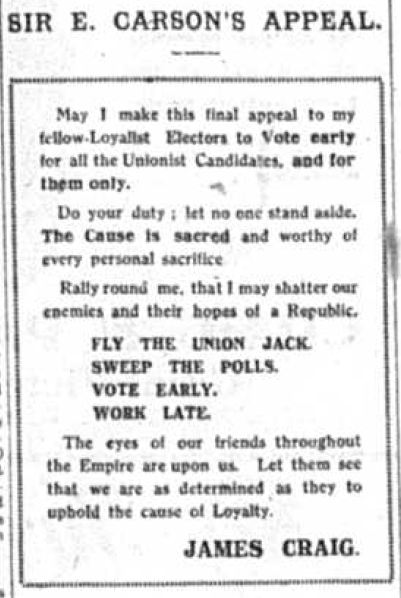

Continuing with the theme of a righteous fight, the News Letter quoted Sir Dawson Bates, who would go on to become Stormont minister of home affairs, who told a meeting, they were "at the eve of the greatest fight that had ever been fought in Ulster for civil and religious liberty".
'Base political jugglery'
The Northern Whig, meanwhile, proclaimed that the fate of Ulster was in the balance.
Its editorial told readers the Unionist Party wanted to give a "fair start" to the new parliament while "Sinn Féin-Nationalists" wanted to destroy it.
The nationalist Irish News on the other hand used its editorial to call on voters to "vote against the partition and destruction of Ireland".
It added: "Partition was devised to kill the Irish nation - to make unity between North and South impossible for evermore.
"It is wrong to seek the destruction of an ancient country and a proud people by such base political jugglery.
"Therefore vote for the men who ask your support because they oppose and would defeat the object of the political jugglers."
Sinn Féin leader Éamon De Valera was quoted in the Northern Whig appealing for a vote "against war with your fellow countrymen" and a future "commanded by orange and green".
The Labour movement, which ultimately did not receive many votes in the 1921 election, also railed against partition in the Irish News.
It argued: "Partition means destruction for organised toil.
"Don't vote for any ascendancy-partitionist candidate on the list."
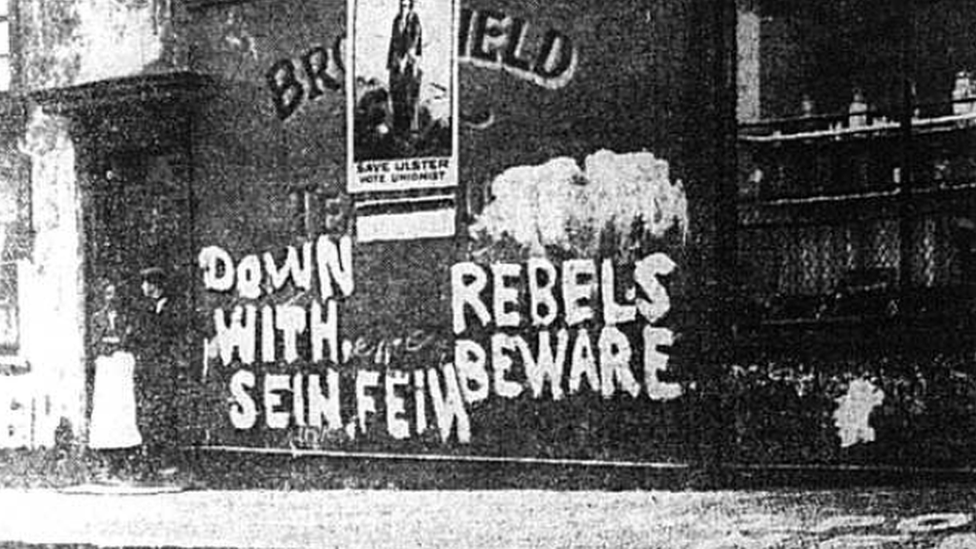
Graffiti urged unionists to vote against Sinn Féin
The election also introduced a new voting system for the first time - the Single Transferable Vote method familiar to voters in Northern Ireland Assembly elections today.
But the News Letter advised its readers that there was no need to be concerned.
Its editorial told them: "All they have to do is to insert in the ballot papers, opposite the names of the candidates, the figures 1, 2, 3, 4 and so on until they have voted for all the Loyalist representatives".

The outcome
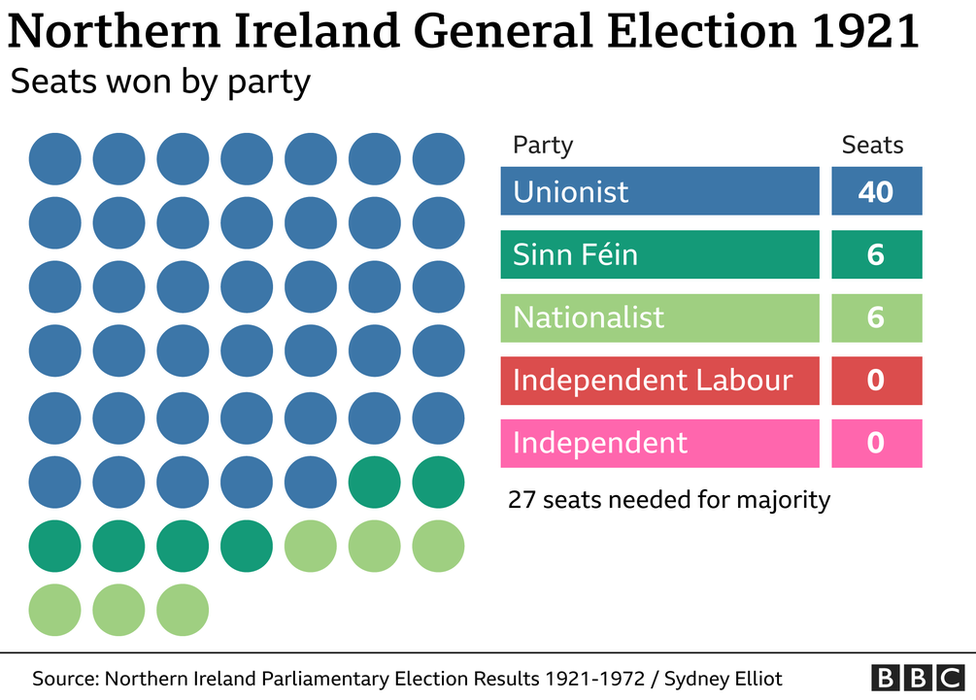
Unionists dominated the new Northern Ireland Parliament

The election resulted in a landslide victory for the Unionist Party, which won 40 of the 52 seats up for grabs in the House of Commons of Northern Ireland.
Sinn Féin, which went into the poll with high hopes, won just six, the same number won by the Nationalist Party.
It was also a disappointing election for Labour, which stood four candidates but won just 0.6% of the vote.
Unionist dominance at Northern Ireland's elections would last for half a century.

The violence across Ireland is evident from most of the newspaper coverage.
The News Letter's headlines included: "Another Murder in Dublin, Stone-throwing in Belfast, Police Shot at in the Old Lodge Road."
The Irish News reported: "Cavan Shoemaker Attack, Cork and Kilkenny Attacks, Ambulance Burned in Dublin, County Sligo Ambush."
The Belfast Telegraph, meanwhile, featured a lengthy report on the burning of the Custom House in Dublin in an operation by the IRA during the War of Independence.
Unsurprisingly, the fear of violence was not far away ahead of polling day and the papers all featured a plea from the Lord Mayor of Belfast, W F Coates, who urged people to "refrain from any action which might endanger the safety and reputation of the city".
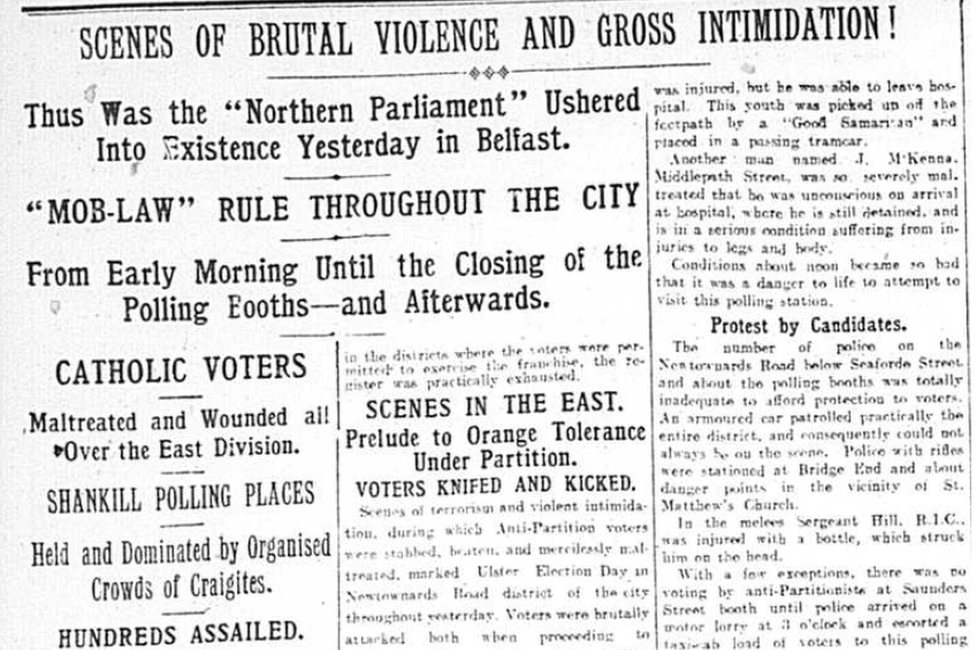
The Irish News reported on widespread violence
But the Irish News reported that this was not heeded by many.
Under the headline "Scenes of Brutal Violence and Gross Intimidation" it said: "Thus was the 'Northern Parliament' ushered into existence yesterday in Belfast."
It said that Catholic voters were "maltreated and wounded all over the east division" and that polling stations in the Shankill were "held and dominated by organised crowds of Craigites".
Other reports included voters being "knifed and kicked" and beaten by "hostile mobs".
But the Northern Whig did not seem to receive the same reports.
It said: "Both in city and country the elections aroused unprecedented interest and everywhere the poll is stated to be the most exhaustive on record.
"No serious disturbances are reported."

The BBC News NI website has a dedicated section marking the 100th anniversary of the creation of Northern Ireland and partition of the island.
There are special reports on the major figures of the time and the events that shaped modern Ireland available at bbc.co.uk/ni100.
Year '21: You can also explore how Northern Ireland was created a hundred years ago in the company of Tara Mills and Declan Harvey.
Listen to the latest Year '21 podcast on BBC Sounds or catch-up on previous episodes.

Related topics
- Published2 May 2021
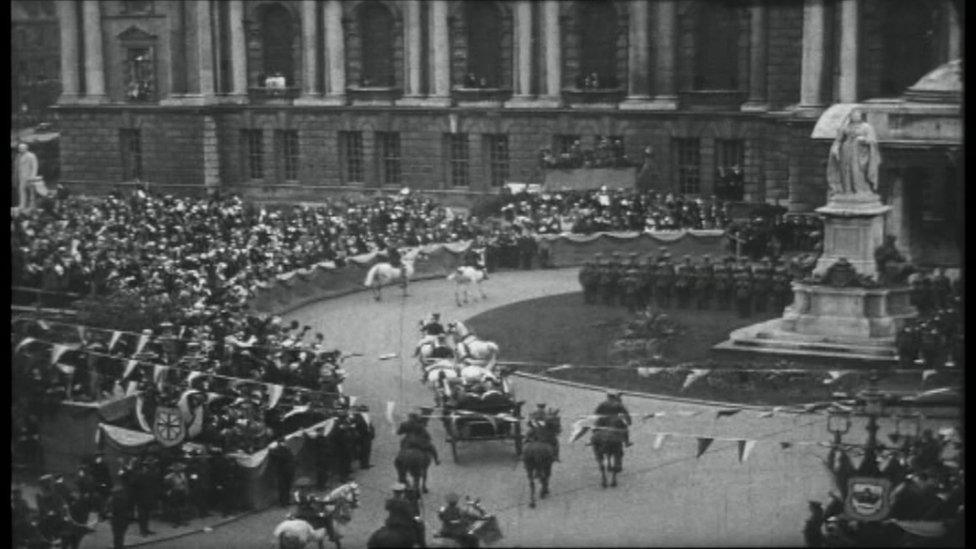
- Published3 May 2021
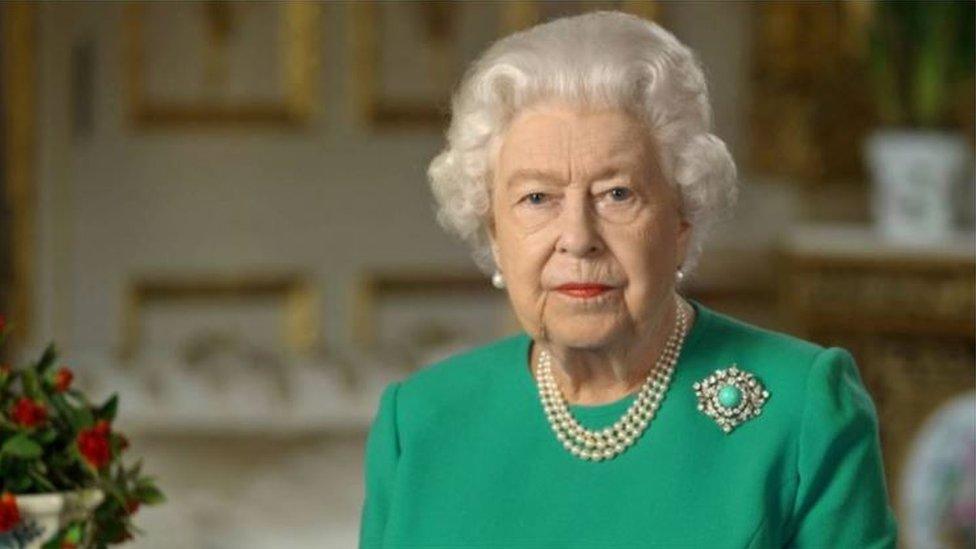
- Published5 May 2021
